With the high cost of living, how can you ever save enough money to travel for longer than a few weeks, or to another country? Read our 8 easy tips to save the most money before you leave so you can travel longer and see more!
8 Tips to Save Money Before Your Big Trip
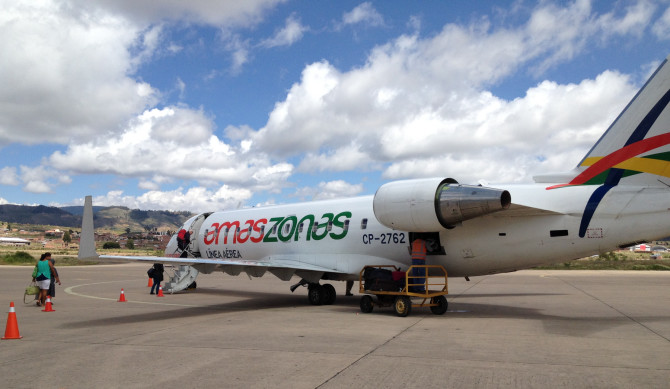
My wife and I try to be frugal spenders, but saving for a long trip away from the US required more than our average saving habits. Once we had a goal in mind to quit our jobs and live in another country, we really hunkered down and saved as much as we could. We found a few tips on saving money that worked better for us than others, and were crucial to us as we saved for our trip. I’ve also written a few pages about selling all our things on eBay, Craigslist, and with Garage Sales so read through those next!
1. Write Everything Down
First off, you need to know what money is coming in and what is going out. Write down a list of all your income and expenses for each month. That sounds easy, but can be daunting to track each purchase, not just the big bills. Writing down all the small things gives you a much better idea of where you’re money is going and really helps to keep track of what you are spending. The hardest part of this is actually facing the facts of what we’re spending our hard-earned money on. Most people don’t want to know where their every dollar is going because they know they’re spending too much.  We weren’t so good at keeping up with this when we were planning to leave, but now that we’re away we realize how important it is and are dedicated to tracking our every dollar. At first we made lots of messy spreadsheets to help add up the numbers, but then we found an iPhone app called Trail Wallet that makes it quick and simple to track and categorize our expenses to fit your spending. Read our review of it here. Sometimes it is really surprising to find out where our money is going! We found out a lot about our money spending habits and how to trim off everything we could! To complete your money laundry list, don’t forget to add in annual expenses. These are easy to forget about since they’re usually from many months ago, but they are just as important as day-to-day spending.
We weren’t so good at keeping up with this when we were planning to leave, but now that we’re away we realize how important it is and are dedicated to tracking our every dollar. At first we made lots of messy spreadsheets to help add up the numbers, but then we found an iPhone app called Trail Wallet that makes it quick and simple to track and categorize our expenses to fit your spending. Read our review of it here. Sometimes it is really surprising to find out where our money is going! We found out a lot about our money spending habits and how to trim off everything we could! To complete your money laundry list, don’t forget to add in annual expenses. These are easy to forget about since they’re usually from many months ago, but they are just as important as day-to-day spending.
2. Adding and Subtracting
Nobody likes to hear the word budget. It has some connotation of a magic land where there’s plenty of money growing on trees. Face it, discipline is never easy, no matter how old we are. Even the US government seems to think that balanced budgets are for someone else. It’s easier to think of it as simple addition and subtraction math. Since you just made a a list of all your money in and out, simply line up the numbers and see how much you have left over at the end of each month. Take the estimated cost of your trip and divide it by your monthly savings to find how many months you need to save. Is it too long to wait? Don’t worry, check back on this formula after you apply more of the money saving tips below.  Keep the goal in sight! It is really important to budget your limited income during the last few months because every dollar you save before you leave will allow you to stay away longer and be able to pay for the once-in-a-lifetime experiences wherever you go.
Keep the goal in sight! It is really important to budget your limited income during the last few months because every dollar you save before you leave will allow you to stay away longer and be able to pay for the once-in-a-lifetime experiences wherever you go.
3. Out of Sight, Out of Mind
You’ve heard the saying “Money burns a hole in your pocket.” The flip side is also true. If you don’t have extra money around, you won’t spend it. If you don’t see your money in your bank account you won’t be inclined to spend it because it’s “not there” in your mind. Put one paycheck in savings right away (or half if there’s only one income) so your brain thinks you have to survive on only half your income. You will get more creative than you give yourself credit for.
Move your trip savings to a separate account that you don’t check often or even to a separate bank. An online bank is great because you can transfer money into and out of it easily, but only need to check on it every few months or so. Get a head start and pick a bank with no international ATM fees. We recommend a Schwab account. While you’re at it, give yourself a challenge and set up an automatic monthly transfer!
4. Switch to a Cheaper Cell Phone Plan
Wait a sec!! Don’t renew your contract when your 2 years are up! We saved quite a bit of money each month by switching carriers from Verizon to a Virgin Mobile, a discount carrier that uses Sprint’s cell towers. It dropped our bill from $130 to $70 per month for the same service on 2 phones, and we weren’t locked in for another 2 years – great, because we were leaving sooner than that! We had to front the cost for a new phone ($100) that worked with their services, but paid it off with the monthly price difference in only 3 months.
When you’re about to move, just sell your phone on eBay and you’ll make back at least half of the cost! Many companies have started offering cheaper cell phone services lately so there are a lot of options. Some even use your home wi-fi to make calls when you’re there and switch to cell towers if needed. So long, expensive phone service!
In the mood to save more money? That’s the spirit! Only use one cell phone. Drop your home phone line and any other cell phones you may have. Drop your Cable TV, satellite dish, and Netflix subscriptions. Go outside to have fun, it works!
5. Move to a Cheaper Place to Live
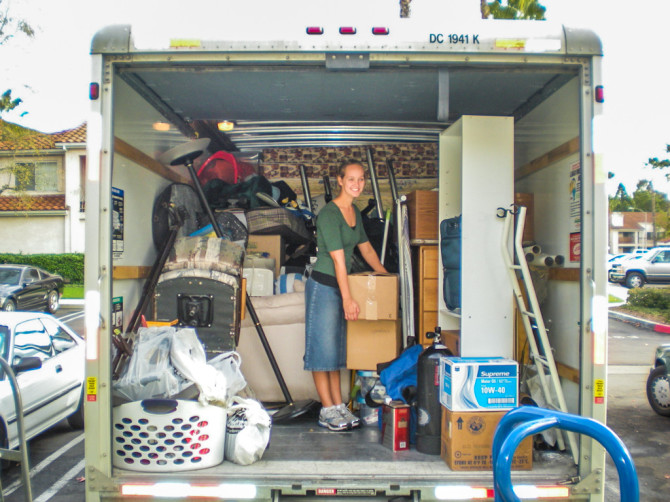 It is amazing how much money you can save if you live in a smaller house or apartment for a few months. Housing is typically the largest household expense, so there’s the most potential to save money here. We owned a house in the US and were planning on renting it while we were gone, so we moved out 5 months early and just rented a room from some friends during that time. We had already sold most of our things, so we didn’t need more space than a bedroom the last few months. If you can live with friends or family for free that’s even better!
It is amazing how much money you can save if you live in a smaller house or apartment for a few months. Housing is typically the largest household expense, so there’s the most potential to save money here. We owned a house in the US and were planning on renting it while we were gone, so we moved out 5 months early and just rented a room from some friends during that time. We had already sold most of our things, so we didn’t need more space than a bedroom the last few months. If you can live with friends or family for free that’s even better!
6. Quit Buying Things
Stop buying things! Don’t window shop or browse, especially at Costco! You probably don’t need that latest trinket you just saw and can get along fine without it. If it’s over $20 and you really think you need to buy it, walk around the store a few more times or go home and think about it. Only then after leaving the “impulse buying” setting can you decide if you really need it. Sometimes my wife would come home with a random candle or decoration and be beating herself up over because she knew we didn’t really need it. But it was cute and on sale so she got it. I’m glad she saw the need to budget too, and I didn’t have to frown at her every time she walked in the door with a ton of bags. But they are just things that add up and once we got out of that mentality of buying things, our life actually became a lot more stress free.
7. Start Using Cash Instead of Credit (or Debit) Cards
Feeling the pain of buying something right when you purchase it really helps your savings. If you use a credit card, the bill is so far away you’ve forgotten what you bought and just pay it without thinking. It is much more difficult to buy something on impulse with cash because you’re actually paying for it right then and there. Debit cards are better than credit cards because you’re pulling money out of your bank account, but counting out the paper money in your hands really hurts – in a good way. It also makes you plan for your purchases (which is a good thing) because you need to have enough cash on you to buy whatever you’re aiming to buy. Only use plastic cards for buying airplane tickets and traveling supplies from Amazon, but watch out for impulse buying!
8. Don’t Drive as Much
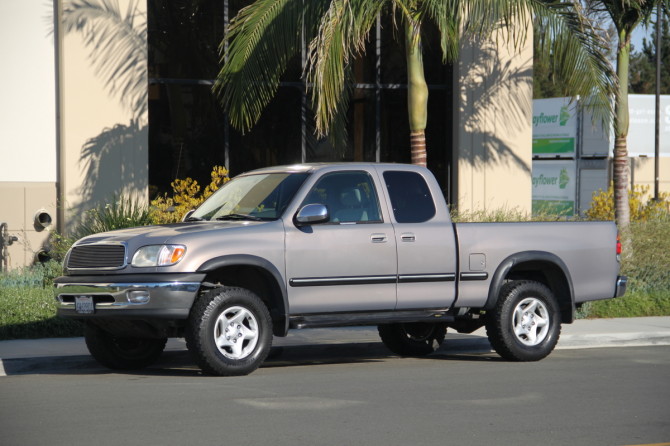 Slow down and don’t try to do everything. Save on gas by simply using less of it, or use a car instead of a gas-guzzling truck. Stay local on the weekends and hang out with your neighbors instead of your friends 30 miles away. Combine your trips around town and visits to see your family. It is more difficult to see family that lives in another state, but use Skype to stay in touch the last few months when you’re saving hard.
Slow down and don’t try to do everything. Save on gas by simply using less of it, or use a car instead of a gas-guzzling truck. Stay local on the weekends and hang out with your neighbors instead of your friends 30 miles away. Combine your trips around town and visits to see your family. It is more difficult to see family that lives in another state, but use Skype to stay in touch the last few months when you’re saving hard.
There! You’ve made it!
Read the next post to find out our 6 Tips to Save Money While Traveling, the money-saving path is just starting! These are just a few tips that worked well for us but there are so many more.




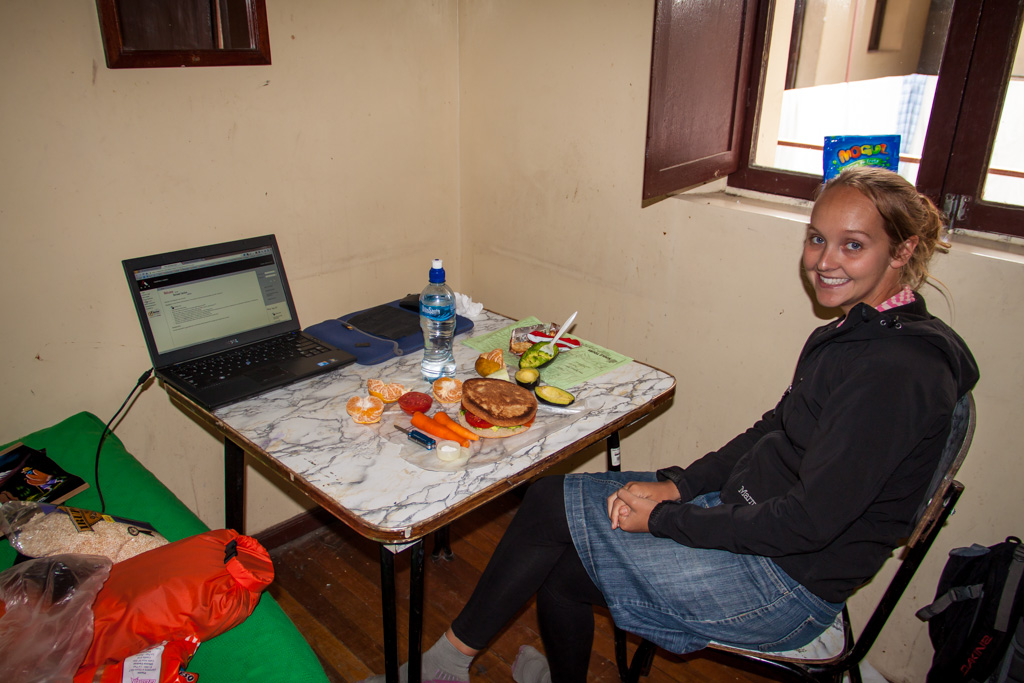

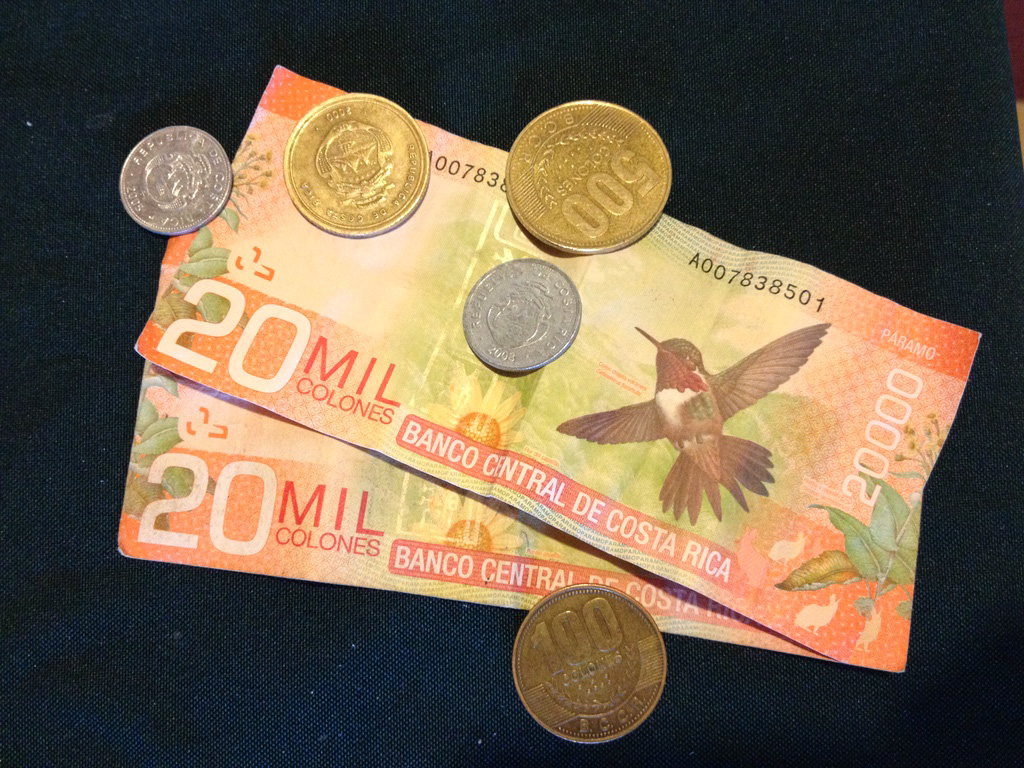

Do you guys have a car now that you are living outside of the US?
Hey Steve! Yes, we had a car while we were in Costa Rica for about 9 months. We were pretty settled there so we figured it would be best to get a car and it worked out perfect for that! When we are traveling faster like we are now in Southeast Asia, we obviously don’t have a car. It just depends on where we are and how long we are staying to consider it. Are you thinking of buying a car outside the US?